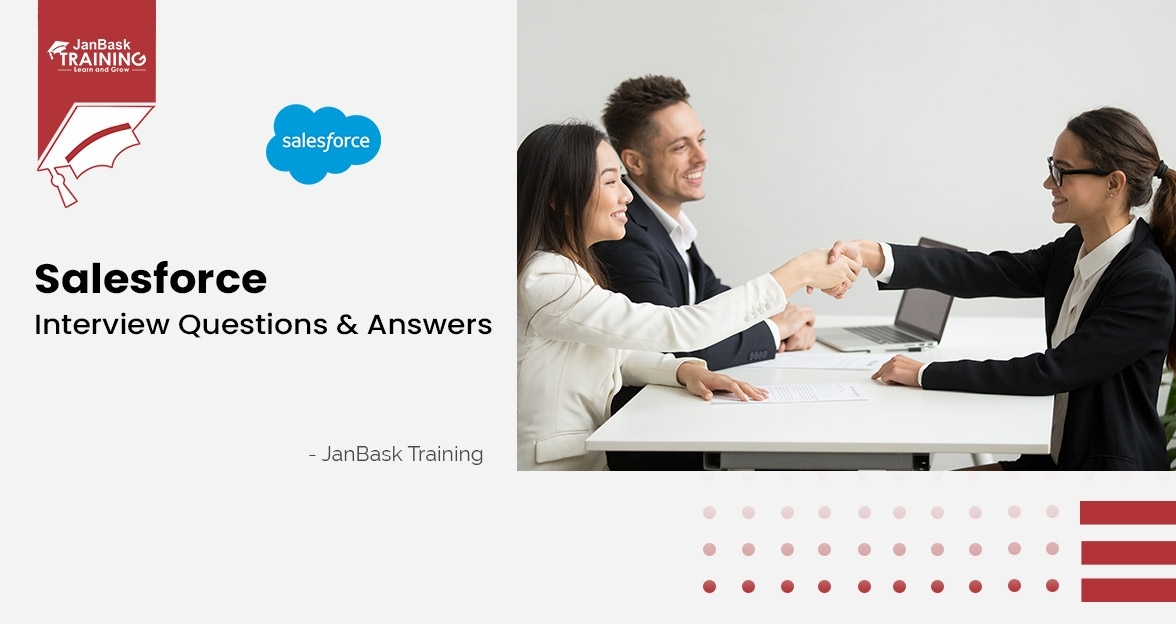 Grab Deal : Upto 30% off on live classes + 2 free self-paced courses - SCHEDULE CALL
Grab Deal : Upto 30% off on live classes + 2 free self-paced courses - SCHEDULE CALL

 Grab Deal : Upto 30% off on live classes + 2 free self-paced courses - SCHEDULE CALL
Grab Deal : Upto 30% off on live classes + 2 free self-paced courses - SCHEDULE CALL

In today's fast-paced business landscape, customer relationship management has become paramount for organizations looking to thrive and expand their horizons. Salesforce, a robust and versatile CRM platform, has emerged as a game-changer, empowering businesses to streamline their operations, enhance customer interactions, and drive sustainable growth. However, the true potential of Salesforce can only be harnessed with the guidance of a seasoned Salesforce consultant.
Salesforce consultants are the architects behind successful CRM implementations, helping companies customize Salesforce to their unique needs, optimize their processes, and unlock the platform's full potential. Whether you're a seasoned professional in the field or just starting your journey as a Salesforce consultant, with Salesforce training, understanding the right interview questions can be the key to securing your dream job or client.
In this blog, we will delve into the world of Salesforce consulting and provide a comprehensive list of interview questions that will help you prepare for interviews. These questions will cover various aspects of Salesforce consulting, from technical expertise to soft skills, ensuring you're well-equipped to excel in this exciting and dynamic field. To make it easier for you, we have divided the questions into three sections
Lets get started!
Answer: Salesforce is a cloud-based customer relationship management (CRM) platform that helps businesses manage their sales, customer service, marketing, and more. It benefits businesses by providing a unified platform for managing customer data, automating processes, improving collaboration, and delivering personalized customer experiences.
Answer: Salesforce Classic is the older user interface, while Salesforce Lightning is the modern, more visually appealing interface. Lightning offers better performance, mobile responsiveness, and productivity features like the App Builder and Lightning Components, making it a preferred choice for most users.
Answer: A Salesforce sandbox is a copy of a Salesforce environment used for development and testing purposes. It allows developers to create and test changes without affecting the production environment. There are different types of sandboxes, such as Developer, Developer Pro, Partial, and Full, each serving different testing needs.
Answer: Salesforce data model consists of objects (tables), fields (columns), and relationships (links between objects). Objects represent entities like Leads, Accounts, or Opportunities. Fields are data elements like Name, Email, or Date. Relationships define how objects are related, like a Contact being related to an Account through a lookup or master-detail relationship.
Answer: To create a custom object, navigate to Setup > Objects and Fields > Object Manager > Create Custom Object. Common use cases for custom objects include tracking custom data specific to a business, such as Projects, Assets, or Orders.
Answer: A profile controls permissions and access settings for users, while a role defines a user's place in the role hierarchy, affecting record sharing. Profiles determine what actions users can perform, while roles determine which records they can access.
Answer: A record type defines different sets of picklist values, page layouts, and business processes for a specific object. They are used when you want to customize the user experience or business processes for different subsets of records within the same object, such as Cases with different handling procedures.
Answer: Security and access controls are set up through profiles, roles, and sharing settings. Permission sets
Answer: Salesforce has become popular recently due to its evolving cloud-based CRM, user-friendly, customer-oriented approach, integration ability, and innovative design, which enables organizations to structure the process, gain valuable insights, and enhance customer relationships in a pioneering digital world.
Answer: Some of the key features and aspects of Salesforce that I can discuss include:
Ensure you have enough idea about the Salesforce features because this will show how familiar you are with the platform and help you answer further questions.
Answer:
Answer:
Answer:
After going through these questions, if you feel like you need clarification! You can always look out for a Salesforce learning with Janbask.
Answer:
Answer:
An approval process automates the approval of documents like opportunities or expense reports. It comprises approval or rejection steps that can be defined using the Approval Process wizard.
Answer:
In multi-step approval processes, approval phases, actions (approve/reject), and criteria for each are defined. Users with the necessary permissions can submit records for approval, and selected approvers can evaluate and act on the records.
Answer:
Integration entails determining data flow requirements, selecting appropriate integration techniques (APIs, middleware, connectors), mapping data fields, and maintaining data consistency across systems.
Answer:
Declarative customization entails using point-and-click tools such as Process Builder, Workflow Rules, and Validation Rules. Apex (programming language) and Visualforce (markup language) generate bespoke capabilities through programmatic customization.
Answer:
An interviewer often asks this salesforce consultant interview question. So make sure you answer this with confidence. Now, let's get to the answer:
Data migration entails mapping data fields, cleaning and converting data, and moving data from the legacy system to Salesforce utilizing technologies such as Data Loader or third-party applications.
Answer:
Answer:
Salesforce's AppExchange is a marketplace for third-party applications that may be linked into Salesforce to increase functionality and fulfill specific business needs. It is beneficial for a Salesforce developer.
Answer:
The answer to this salesforce consultant interview question can be short and crispy. It can be in such a manner: User adoption can be increased by integrating users early in the process, offering enough training, stressing benefits, addressing concerns, and soliciting feedback regularly.
Answer:
Validation rules ensure data accuracy by comparing input to predefined criteria before saving it. They contribute to data integrity by preventing incorrect or incomplete data entry.
Answer:
Workflow rules automate typical internal procedures and processes, whereas Process Builder creates a graphical depiction of the process to automate complicated corporate processes.
Answer:
Answer:
Answer:
Analytic snapshots are objects that capture and store data at a particular time. This information can be used for historical reporting as well as trend research.
Answer:
Answer:
Data migration entails mapping data fields, cleaning and converting data, and transferring data from the legacy system to Salesforce utilizing tools such as Data Loader or third-party solutions.
Answer:
Here are a few instances of Salesforce governor limits:
Answer:
Answer:
A trigger framework is a systematic way to manage triggers. Make a base trigger handler class; each trigger will call methods from it. It promotes code reuse, centralization, and simplified maintenance.
Answer:
Answer:
Trigger TriggerName on ObjectName (before the event) //The event can be inserted, updated, or deleted in this case.
{
code_block
}TriggerName on ObjectName (after the event) //The event can be inserted, updated, or deleted in this case.
{
code_block
}35. Describe the use of schema objects such as Schema.Schema and SObjectType.Apex DescribeSObjectResult.
Answer:
The answer is Schema Object Type provides an Object token that represents an object. Schema. Describes Object Result gives information on an object's structure, fields, and relationships.
Answer:
Strings are used to generate queries in dynamic SOQL. Database.query(query); String query = 'SELECT Id, Name FROM'+ objectName +'WHERE CreatedDate >:date value;
Answer:
Custom metadata types contain application configuration data that may be deployed across many environments. Custom metadata types, unlike custom settings, are read-only in Apex.
Answer:
Make sure you answer these salesforce consultant interview questions with confidence to have a positive impact on the interviewer.
Answer:
Answer:
Asynchronous Apex allows code to be executed outside of the primary transaction. @future methods execute in the background, whereas queueable Apex allows for greater control over execution and chaining.
You can also take an online Salesforce training with Janbask to ace the interview with more confidence.
Answer:
Asynchronous methods are specified via future annotations. These future-annotated methods should be static and only return void. Primitive data types/collections of primitive data types/arrays of primitive data types should be mentioned as parameters.
When Salesforce has available resources, a method provided with the @future annotation will be run.
Answer:
The Salesforce Object Query Language, or SOQL, is used to query records from database.com as needed. SOQL statements are classified into two types:
Answer:
There are four types of email templates available in Salesforce:
Answer:
The interviewer expects a detailed answer to this salesforce consultant interview question. So you can answer it in such a manner:
Answer:
An audit trail is a tool in Salesforce that tracks, and documents changes made to records and setup configuration inside the platform. It records past activity and adjustments, letting administrators and users evaluate and track changes. The audit trail Within the Salesforce system helps verify data integrity, compliance, and accountability.
Answer:
A wrapper class in Salesforce is a custom Apex class that encapsulates numerous data kinds or objects into a single object. It enables you to integrate many sorts of data or objects into a cohesive structure, making them easier to deal with and transfer in Apex code.
Answer:
Salesforce SaaS offers financial savings to firms using the CRM platform, quick accessibility, scalability, data protection, continuous updates, seamless integration, customization possibilities, collaboration tools, and robust analytics.
Answer:
The interviewers commonly ask this Salesforce technical consultant interview question to understand your in-depth knowledge of Salesforce. A sandbox is a replica of the production environment/org that is used for testing and development. It's useful because it allows Apex programming development without disrupting the production environment.
It can be used to test a newly developed Force.com application or Visualforce website. Instead of doing it in production, you can develop and test it in the Sandbox org.
This allows you to quickly create the application and transfer the metadata and data (if applicable) to the production environment. This allows salesforce developers to freely test and experiment with apps from start to finish in a non-production environment.
Answer:
To produce auto numbers, specify the format when adding the field, and the number will be generated automatically for each record added after that. As an example:
Sr No-{1}
Sr No-{2}
Sr No-{3}
Answer:
So these are the top 50 sets of frequently asked Salesforce consultant interview questions, which we have curated to make your job easier. It would be best if you were nervous about cracking that interview to secure your dream job. But rest assured, after reading this, you sure will win that job.
Building a remarkable career in Salesforce, like any other field, requires dedication, continuous learning, and strategic planning. Here are some tips to help you pave the way for a successful and fulfilling career in Salesforce:
Salesforce Training For Administrators & Developers

Salesforce is integral to a company's sales and marketing automation activities. And there has recently been an increase in demand for a well-qualified Salesforce expert. Furthermore, as demand has increased, so has competition for the Salesforce consultant position, so being prepared might help you stand out from the crowd. This collection of the top 50 well-researched Salesforce consultant interview questions and answer series will help you land your dream job. We recommend taking an online Salesforce Certification Training course to ace your interview like a pro.
|
Course Name |
Training Program |
|
Salesforce consultant master |
https://www.janbasktraining.com/online-salesforce-training |
|
Salesforce administrator |
https://www.janbasktraining.com/online-salesforce-admin-training |
|
Salesforce developer |
https://www.janbasktraining.com/salesforce-developer |
|
Salesforce app builder |
https://www.janbasktraining.com/online-salesforce-app-builder-training |
|
Salesforce lightning |
https://www.janbasktraining.com/salesforce-lightning-training |
|
Salesforce services cloud |
https://www.janbasktraining.com/salesforce-service-cloud-certification-training |
Q1. Is it worth it to become a Salesforce consultant?
Ans- Yes, definitely it is worth being a salesforce consultant. The range of opportunities, growth, and salary packages will give you a remarkable career.And with our set of salesforce consultant interview questions, you are good to go!
Q2. What are the skills required to be a Salesforce consultant?
Ans- Some of the skills required to be a salesforce consultant are technical, Customer Service, Facilitation, Computer Science, CRM, Project Management, and Documentation, along with some soft skills.
Q3. What is the job of a salesforce consultant?
Ans- The consultant will design, construct, deliver, and maintain our Salesforce ecosystem using their knowledge, problem-solving abilities, and creative flair. In addition, the consultant will assist with developing business requirements, specifications, process flows, application design and configuration, testing, and deployment.
Q4.Can I become a Salesforce professional without an entrance exam?
Ans- To earn better job opportunities and to work in exceptional teams across big organizations one needs to be clear of the certification exam, without qualifying for the entrance the chances of job opportunities will be limited. You can also enroll in an online salesforce certification training course at Janbask to gain appropriate knowledge.
Q5. What is the starting compensation for a Salesforce consultant?
Ans- Salesforce Consultant salary in India ranges from 4.0 Lakhs to 20.0 Lakhs with an average annual pay of 9.0 Lakhs based on 2.8k current salaries. Are you being underpaid? Determine whether or not you are being paid fairly.You can also look out for the salary insights of a salesforce developer.

Must-Know Salesforce Apex Interview Questions and Answers

Top JWS and JWT Interview Questions and Answers

Top Salesforce Interview Questions and Answers

Interview Questions Based On Login Issues & Passwords

Cyber Security

QA

Salesforce

Business Analyst

MS SQL Server

Data Science

DevOps

Hadoop

Python

Artificial Intelligence

Machine Learning

Tableau
Download Syllabus
Get Complete Course Syllabus
Enroll For Demo Class
It will take less than a minute
Tutorials
Interviews
You must be logged in to post a comment